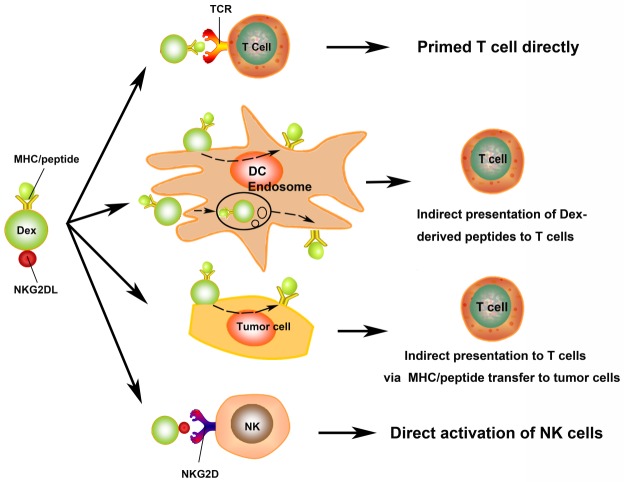Figure 2.
The role of exosomes derived from DC (Dexs) in anti-tumor immunity. Dexs may stimulate T cells via direct and indirect routes. The presence of MHC/peptide complex on the surface of Dexs stimulates T cells directly. Dexs activate T cells indirectly by bystander DCs via two mechanisms, one is Dexs fuse with PM of DCs and transfer MHC/peptide complexes to DCs surface immediately, the other one, Dexs are internalised into the endosomes and processed by APCs, following the antigen presentation on the surface of APCs indirectly. Dexs may also present MHC/peptide complexes to host T cells by MHC/peptide transfer to tumor cells. Dexs were shown to possess NKG2D ligand (NKG2DL), which can interact with NKG2D and activate NK cells.

